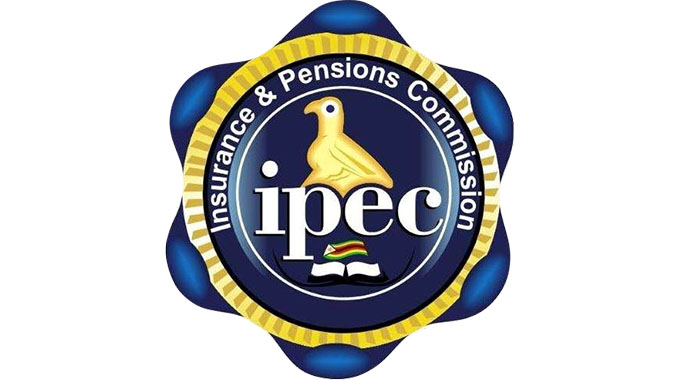
By Edward Makuzva
INSURANCE is often viewed as a necessary evil, a safety net for unforeseen events, but its impact goes beyond mere financial protection.
It is a lifeline for individuals, families, and businesses, providing peace of mind and stability in an uncertain world.
The insurance industry plays a vital role in the economy, and is a lifeline for individuals families and businesses as it provides
financial protection and stability.
However, the industry is facing a significant challenge: low compliance to regulatory mandates.
In an ever-changing world, insurers are constantly required by the authorities to maintain high standards in the governance of their companies.
Resounding bankruptcies in the past have been pushing companies to exercise utmost caution and take appropriate measures to maintain solvency and insurance consumers’ confidence.
The risk of non-compliance has often been seen as the risk of legal or regulatory sanctions, material financial losses or deterioration of the image that an insurer may sustain for non-compliance with laws, regulations and administrative provisions pertaining to the company’s operations.
It is thus critical that insurance companies comply with all regulatory standards to protect themselves and their customers.
However, despite efforts by the regulatory authority, insurance players have been struggling to comply in a number of areas putting policyholders at risk.
The low compliance rate have been attributed to a number of factors including lack of understanding, resource constraints, regulatory complexities,prioritization issues and inadequate systems and processes among others.
The most areas of non compliance have been on prescribed assets, capital requirements and reinsurance.
Whilst amost players are capitalised under the Minimum Capital Requirements(MCR), Ipec said the sensitivity analysis carried out by the Commission using the new proposed capital requirements indicated that most players will be under capitalised and as such, they are required to submit prospective
compliance roadmaps to the Commission.
Under the Zimbabwe Integrated Risk and Capital Programme (ZICARP) the capital requirements will be stricter, and all the
players are expected to comply with the new capital regime.
While recent reports have shown that most people would rather have funeral assurance, the sector has been the least compliant according to IPEC reports putting most policy holders at risk.
The last funeral report published by Ipec for Q3 2023 shows that all funeral assurers were non-compliant with the minimum Prescribed Asset requirements resulting in an average Prescribed Asset ratio of 0.18% against the minimum 10%.
All the seven funeral assurers had no reassurance arrangements in place during
the period.
Again, only two entities submitted compliance roadmaps, which were
under consideration while the rest were yet to submit.
In Q1 2024 , Ipec saw only seven out of the twenty short term insurers compliant with the minimum prescribed asset ratio of 10% .
For pensions Ipec said notwithstanding the increase in the prescribed assets ratio, the ratio was still below the regulatory minimum threshold of 20% .
Ipec urged the industry to invest from
a pool of instruments conferred prescribed asset status to meet the minimum
regulatory tequirements.
Only four out of the 12 life assurers were compliant with the minimum
prescribed asset ratio of 15% of adjusted assets during the period.
The Commission has been engaging the entities that have not yet submitted their compliance roadmaps to regularise their positions saying regulatory sanctions will be applied to entities that fail to comply.
In an exclusive interview, Bayce Microinsurance Principal Officer, Peter Magaya who is also the Interim Chairman of the Microinsurance Association of Zimbabwe (MIAZ) said possible causes of Low or Non-compliance could be attributed to over regulation.
He said an example would be whereby penalties for certain transgressions are excessive to the extent that industry participants are afraid to innovate for fear of reprisals.
In that regard, he said the economy will not grow because there is stifling of coming in of new players, product development and financial growth.
He added that lack of communication was another factor.
Whilst ignorance of the law is no excuse,he said some of the compliance regulation in place might be difficult to understand, to interpret and comply with.
“In some instances, the regulator introduce regulation, SI’s and directives that might not have been understood by the companies to whom they are directed. Even sometimes too many changes to such issues lead to the affected industry to have confusion and lead to non-compliance”, Magaya explained.
Magaya highlighted that corruption and lack of professionalism have been other key factors.
While there is generally need for a friendly operating environment in any regulatory system, he said at times responsible officers tend to take advantage of any form of incentives available to the regulated entities.
“Instead of informing the regulated entities about certain privileges and entitlements, some regulators tend to take advantage of the ignorance of the entities.
” In certain instances, large organisations, in terms of capital and industry experience, have a tendency to bribe their way to deter new entrants and behave as oligopolies at the expense of industry growth.
” This might be done though influencing the regulator to stiffen market entry requirements. Eventually, compliance matters would tilt in their favour because of size”, Magaya added.
Magaya said lack of oversight capacity on non-compliance might also be a result of lack of or limited oversight by the regulatory authority.
Several insurance industry players have however welcomed IPEC ‘s adopts zero tolerance on non compliance saying it is the right thing since is aimed at protecting the policyholder and also ensuring that compliance with policy contracts in the event of claims.
They said Ipec needed teeth to persecute defaulters,absense of which has left policyholders at the mercy of most companies.
“Most companies particularly indigenous owned are inadequately capitalized and have very poor Corporate Governance practices.Classic examples are Funeral Assurance Companies owned by indigenous people where in most cases you find the whole family is in management which is against IPEC regulations this obviously greatly compromises the payment of claims as money usually gets diverted to other things not related to the business”, said one of the insurance industry players.
IPEC Director Corporate Services, Samantha Nhende reaveled that the regulator was taking various measures to ensure that regulated entities comply with the laws and regulations governing their operations.
Nhende added that using the Compliance Index Tool, we track variables such as board composition, board skills mix, minimum capital requirements and prescribed assets.
“Where there is non-compliance, we take appropriate measures against the non-compliant entities in line with IPEC’s intervention ladder. IPEC`s intervention in cases of non-compliance range from levying penalties, suspension from writing new business and disqualification of decision-makers from practicing in the insurance and pensions industry, and instituting criminal proceedings against non-compliant entities where necessary”, Nhende explained.
This year alone, Nhende said several entities had been fined and some suspended from writing new business due to non-compliance with the laws and regulations governing their operations.
She underscored that the Commission was more interested in seeing its regulated entities complying with the laws and regulations instead of penalising them, which is an intervention of last resort.
National Social Security Authority(NSSA) deputy director of Marketing and Public Relations, Tendai Mutseyakwa said the authority has implemented various initiatives to ensure adherence to NSSA statutes.
He said NSSA was intensifying efforts to address low compliance as some companies fail to submit monthly returns.
In addition, he said NSSA had implemented initiatives to ensure adherence to its statutes, including the use of incentives and penalties.
While softer approaches are preffered, stiffer measures including garnish orders may be employed as a last resort.
“To bolster compliance, NSSA has made its clearance certificate mandatory for contractors and suppliers bidding on tenders to ensure companies prioritize compliance ”, Mutseyakwa explained.
Experts agree that by strengthening compliance, the insurance industry can promote a culture of accountability, protect policyholders’ rights, and contribute to economic progress.
Regulatory authorities, industry players, and stakeholders must thus work together to address the challenges facing the industry and ensure that compliance rates improve.

